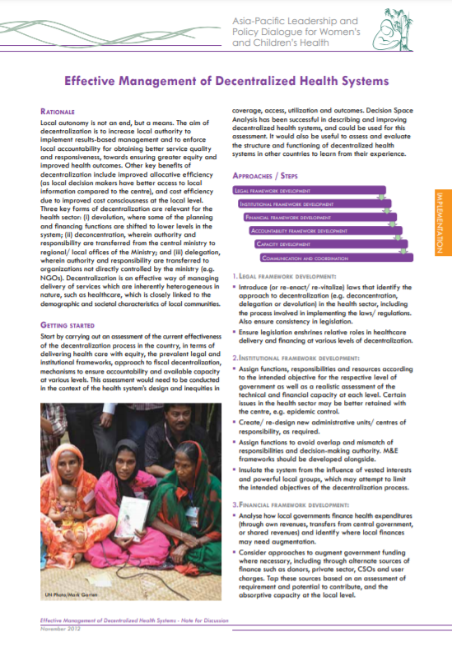Effective management of decentralized health systems

Overview
Local autonomy is not an end, but a means. The aim of decentralization is to increase local authority to implement results-based management and to enforce local accountability for obtaining better service quality and responsiveness, towards ensuring greater equity and improved health outcomes. Other key benefi ts of decentralization include improved allocative effi ciency (as local decision makers have better access to local information compared to the centre), and cost effi ciency due to improved cost consciousness at the local level. Three key forms of decentralization are relevant for the health sector: (i) devolution, where some of the planning and fi nancing functions are shifted to lower levels in the system; (ii) deconcentration, wherein authority and responsibility are transferred from the central ministry to regional/ local offi ces of the Ministry; and (iii) delegation, wherein authority and responsibility are transferred to organizations not directly controlled by the ministry (e.g. NGOs). Decentralization is an effective way of managing delivery of services which are inherently heterogeneous in nature, such as healthcare, which is closely linked to the demographic and societal characteristics of local communities.

.png?sfvrsn=6d0e27cd_1)



